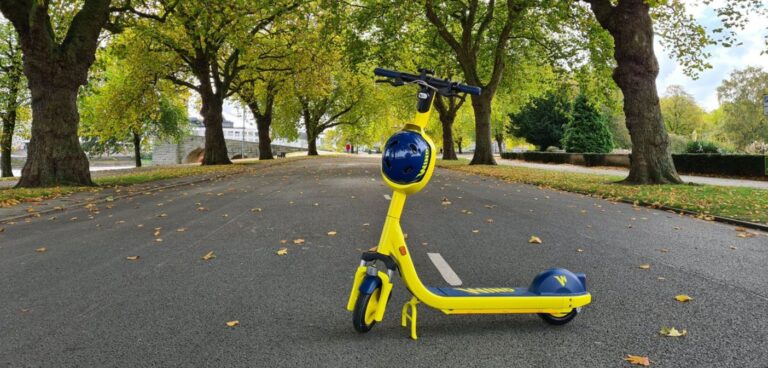Spanish e-scooter operator Wind Mobility has announced that it has achieved climate-neutral certified status having purchased carbon credits to offset its 2019 greenhouse gas footprint.
The micromobility company measured its 2019 carbon emissions from the production of its e-scooters and the operations of its sharing service in 30 cities across the world. In the first quarter of 2021, Wind said it will also offset its 2020 carbon emissions and continue to offset its 2021 carbon footprint.
Eric Wang, co-founder and CEO of Wind Mobility, said: “Achieving carbon neutrality is an important milestone for Wind. In 2019, we started our partnership with Climate Neutral and are now proud to receive the certification label as a Climate Neutral Certified company.
“Wind offers a sustainable and now also completely carbon neutral mode of transportation to complement existing public transport services and to support cities in their fight against pollution and congestion.
“Having our own custom-built scooter means that we not only achieve net-zero carbon emissions for our
operations but also for our entire supply chain and production process, which is unique in the e-scooter sharing industry.”
According to Catriona Meehan, head of sustainability at Wind, a number of the company’s warehouses run entirely on renewable energy, while local Wind teams use electric vans and cargo bikes for scooter servicing and deployment. Furthermore, Wind teams also regularly clear beaches of plastic and other waste in cities such as Barcelona and Tel Aviv.
For the 2019 offset, Wind Mobility is partnering with Cool Effect, a non-profit crowdfunding platform that provides individuals the opportunity to support carbon emission reductions by funding carbon-reducing projects around the world.
The collaboration will support a range of initiatives including a project in Alaska called Bearadise, which aims to sequester about 1.5 million tonnes of carbon dioxide equivalents over its 30-year life by protecting an old growth spruce forest on the North Coast of Afognak Island.
Other schemes include Bright Idea, a rooftop solar panel programme in India to provides clean, renewable electricity to 40,000 rural households; Affordable Cookstoves, which makes and distributes cookstoves that reduce charcoal or wood use in cooking by half to reduce carbon emissions; and the Brazilian Amazon Rosewood Conservation project, which aims to prevent deforestation.





